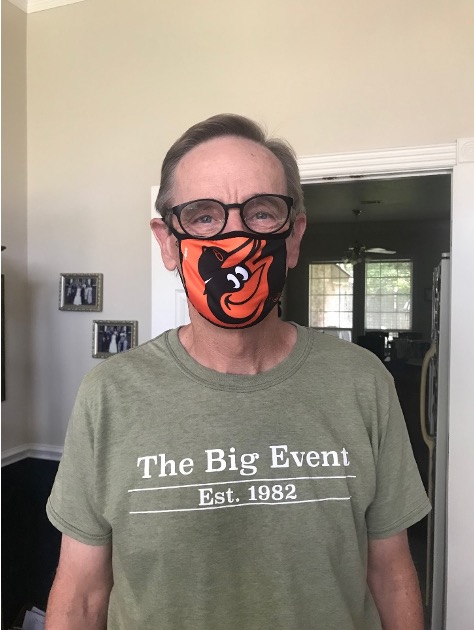Risk-Seeking Behavior in a Pandemic
August 19, 2020
|
Today is the first day of the most unique fall semester of my career as a professor. I will be back in a physical classroom for the first time in months, masked and ready to go. In one of my classes, over 90 percent of students have decided to attend in person. This speaks to me of the longing for human contact, and the fundamentally different experience of even the most humdrum college classroom when compared to a technology link.
Social media is atwitter with stories of reckless college students gathering in droves, and the anticipation is that it is only a matter of time before universities go online. Some prominent universities already have. But there is a certain recklessness, at least a modest amount of risk-seeking behavior, in all of us who are not hypochondriacs. Certain needs will prompt us to assume risk because of what we get in return. We may try to tightly control the extent of that risk. But five months into this COVID adventure, we all have a much better read on our propensity to assume risk.
And, to be honest, it is a lot higher across the spectrum than I would have guessed, and not just for college students. My desire for normalcy in the classroom and in my workplace drive me to assume risk. I feel pressure from peers in my church community to regather, even though it still seems like a bad idea to me. Most people who know me would see me as risk averse; I am, after all, an accountant. And yet later on today I will be face-to-face with new MS Accounting students in a professional seminar in a classroom down the hall.
Many who see college students as selfish would characterize professors going into the classroom as heroic. I think that is a bit of a caricature. Of course, there are a number of college students engaging in purely self-interested behavior because they believe the downside risk is minimal. This is nothing new, and it is the reason we have organizations like CARPOOL at Texas A&M to minimize the consequences of this type of behavior by offering rides home from bars to those who need them.
But professors have needs, too. And when I look in the mirror, I have to ask myself—why have I chosen face-to-face instruction rather than teaching online? Part of it is that I taught online in the spring and summer. To be honest, it would be a lot easier than the hybrid version I will start with this fall, where I try to attend to the needs of students in the classroom and those Zooming in. But I give up a lot sitting in front of a screen, physically detached from my students. My career has been about life-on-life investment, and as hard as I try to make the online experience seamless for my students, it is not the same. Am I being selfless, or is it just evident to me that the experience of being a professor without human contact is, for me, a lifeless one, and less worth doing?
I have often told my students, “If you can’t self-regulate, you WILL be regulated.” I certainly know people who will wear a mask only under force of rule, and complaining all the while. But it is pretty clear at this point that the only thing that can make this fall semester happen the way we want it to is for students and faculty to self-regulate at uncomfortable levels. Around here, we call that selfless service.
Can we do it? Who knows? I know that I will be washing my hands every time I walk by a bathroom, and soaking my paper cuts in hand sanitizer constantly. (Again, I’m an accountant.) I have the equivalent of a “No Shirt, No Shoes, No Service” sign on my office door. I have an assortment of masks for every occasion, from N-95 on down to casual dinner wear. The last thing I want to do is bring this scourge home to the World’s Most Beautiful Woman, and not just because I will be relegated to a distant room (or a tent outside) for two weeks. Protecting her is all that really matters.
It is hard to know how much I will resemble last year’s Dr. Shaub as I go back in the classroom. I feel like a bit of an imposter. But if it protects her, I am okay with that. Whoever I am, I am hopeful, and strangely happy, about this opportunity. I want to do the things I can to prolong it, and I want my students to have fun learning along the way.
But who am I to criticize them for being risk-seeking? My presence with them says that they are not alone. Here’s hoping we are all able to self-regulate sufficiently to prolong the joy that comes from the beauty that is the university classroom.
Explore my recent post “100” and the news story it prompted on KBTX.com.



